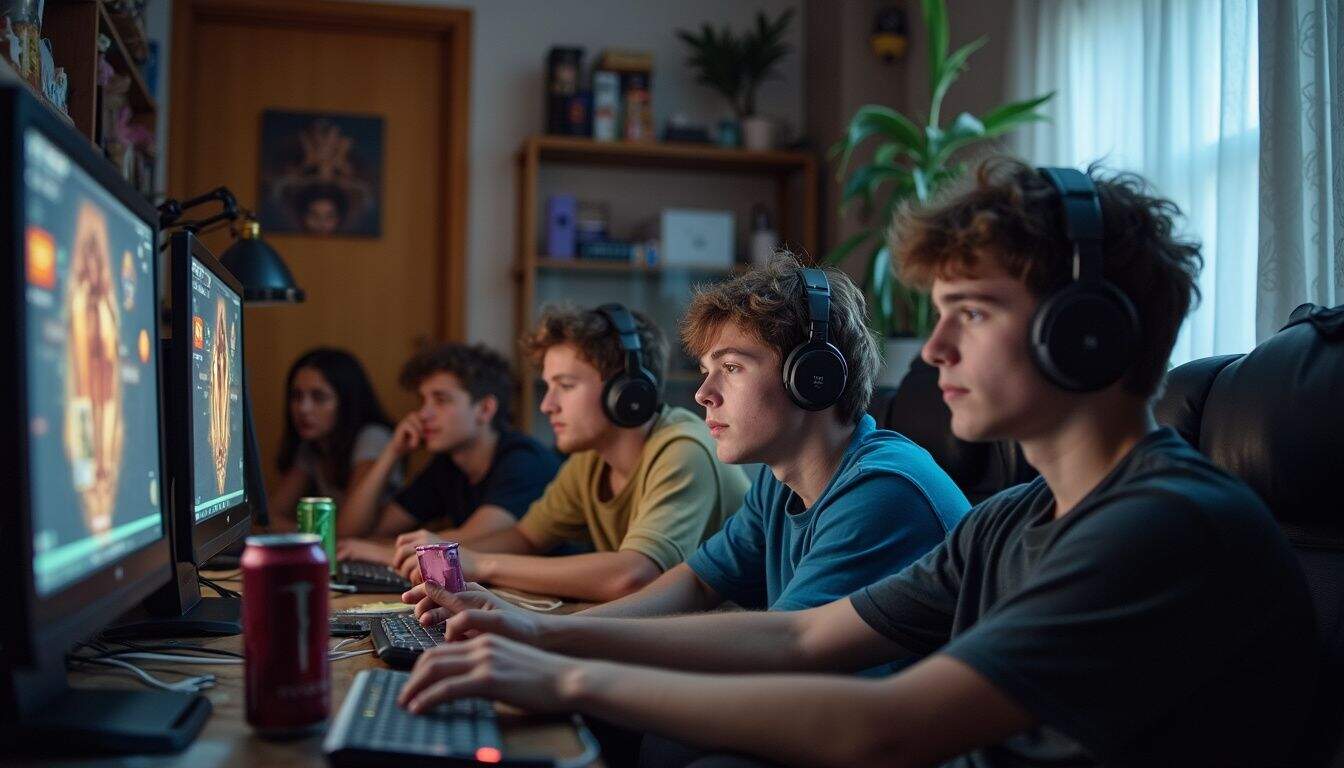Gaming’s changed a lot recently. It’s more than just fun now; people can make cash, trade things, and truly own their creations there. Web3 gaming, which uses blockchain tech, is a big part of that. It lets players have a real piece of the action in these online worlds. Companies like Koala Games are jumping in, linking gamers with blockchain games where they can earn rewards for playing and being creative.
How Games Changed: From Small Buys to Token Systems
For years, games made money the same old way. Companies sold extra content, subscriptions, and stuff you could buy inside the game to get people to spend. Then loot boxes got big around 2010, and folks got upset about whether they were fair and who really owned the stuff they bought. Once a game went offline, all those cool skins and guns were gone.
This frustration kinda paved the way for blockchain models. The play-to-earn (P2E) thing really took off during the 2021 crypto craze. Games like Axie Infinity and Decentraland let players get tokens just for playing. By 2024, the blockchain gaming market was worth over $13 billion, according to Grand View Research. That shows people are happy to put cash into games where they actually own things.
Web3 is bringing in a user-owned economy. Instead of just renting stuff in a developer’s closed-off world, players now own their in-game items as NFTs in their digital wallets. These tokens prove what you own, so you can sell, trade, or use them in various supported games.
How Blockchain Helps Gamers and Game Makers like Koala Games
Blockchain tech in games gives people like you real power. Now, gamers actually own their in-game stuff and who they are online. Blockchain records rare weapons, virtual land, and customized avatars on an immutable ledger. This process securely tracks these assets.
Game creators gain too. They can use smart contracts to set up clear reward systems and send money straight to players or contributors. Some companies have added ways for players to earn just by having tokens in the game. This gets the community involved through DAOs, where token holders vote on updates to the game.
“NFTs are building a new environment that empowers gamers and collectors to have true ownership of their own digital assets. This creates a new future where games will now have a shared economy and community across multiverses, and I’m excited for what’s to come,” says Justin Wu, blockchain influencer and gamer.
The market where people buy and sell digital goods is growing all the time. People are trading skins and collectibles for millions of dollars each month across various online markets, often without the game companies even being involved. You can see where things come from and where they are going, so there is less scamming, and creators and fans trust each other more.
Web3 Gaming Is Picking Up Speed
The tech that runs Web3 games got way better after 2021. Blockchain game companies are getting money, like over $910 billion in 2024 alone! These funds fuel development in cross-chain compatibility, smart contract design, and user onboarding tools that make Web3 games easier to access.
Interoperability is one of the most exciting frontiers. Developers are working to create avatars, achievements, and tokens that move freely between games. This feature allows players to use a sword earned in one fantasy game in another game. It’s a concept that would have been unthinkable in old-school gaming.
This idea used to be a wild dream in regular gaming. Now, places like Koala Games are becoming online hangouts where gamers can discover blockchain games, explore in-game economies, and learn about the rewards they receive as tokens. These gaming platforms mix various games to help regular gamers get into Web3, even if they’re not crypto experts.
Game Economies: What’s Coming?
Web3 gaming is cool, but it’s not perfect. Okay, so things aren’t perfect yet. When a ton of people are on Ethereum, it can get really slow. That’s why some newer blockchains, like Solana and Immutable, are trying to make things faster and cheaper for everyone.
Also, rules matter a lot. Governments are still trying to determine whether those in-game tokens are money, stocks, or just digital goods. How they decide impacts how things are taxed and what rules you have to follow. Developers often structure their tokens as utility assets rather than investments.
“Big businesses like EA and Nike are still moving ahead on digital assets, both operating as public companies. I don’t know how the U.S. will regulate gaming crypto tokens, but the world has already opened Pandora’s box. It’s hard to shut it down when other countries support it. I am in favor of proper regulations for gaming tokens where players and holders are protected. I do not know what that looks like yet,” says Brycent, a well-known Web3 gamer.
Long-term sustainability is another question. The play-to-earn thing that got everyone hooked at first has to change; it can’t just be about guessing and hoping to win. A lot of game makers are changing things up to “play-and-own,” which means creating games that are actually fun, keep you engaged, and then reward you for being part of it.
Despite these issues, gaming seems to be headed toward decentralization. Players want more say in their gaming, and developers are creating systems that reward creativity, loyalty, and community involvement.
Gamers are Becoming Digital Owners on Koala Games and Beyond
Web3 isn’t kicking traditional gaming to the curb; it’s making things bigger and better. Mixing fun with ownership of online stuff can make gaming fairer and more open. Players get a seat at the table, not just a bill. As blockchain becomes easier to handle, gamers and game makers will work more closely together. Platforms like Koala Games will be key for anyone wanting to check out this digital playground.
